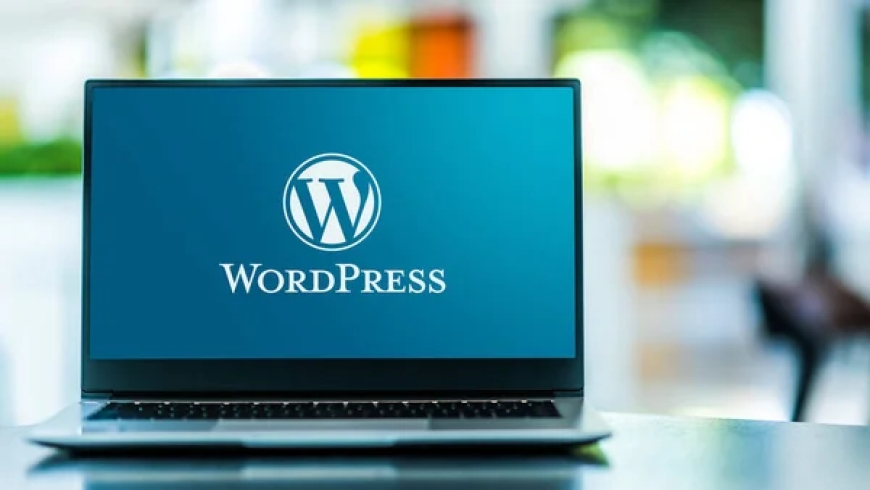WordPress or Custom Website: Pros and Cons Guide
Explore the pros and cons of WordPress vs. custom websites to help you choose the best option for your online presence.

WordPress vs. Custom Websites: Pros and Cons Explained
In today’s digital-first world, having a website is essential for businesses, personal brands, and organizations of all sizes. But one of the first major decisions you’ll face is whether to build your website using a platform like WordPress or to create a custom-built site from scratch. Each approach has its own advantages and drawbacks, and the right choice depends on your goals, budget, and technical needs. In this article, we break down the pros and cons of WordPress and custom websites to help you make an informed decision.
What Is WordPress?
WordPress is an open-source content management system (CMS) that powers over 40% of all websites on the internet. It’s known for its user-friendly interface, vast theme and plugin ecosystem, and flexibility. There are two versions: WordPress.com (a hosted platform) and WordPress.org (self-hosted and open-source). This article focuses on WordPress.org.
What Is a Custom Website?
A custom website is built from the ground up using programming languages like HTML, CSS, JavaScript, and backend technologies like PHP, Python, or Node.js. It doesn’t rely on pre-built CMS platforms and is typically designed to meet specific business requirements. Custom websites are usually developed by professional web developers or agencies.
WordPress: Pros and Cons
✅ Pros of WordPress
1. Ease of Use
WordPress has a straightforward dashboard that even beginners can navigate. Content creation, media uploads, and basic site changes require little to no coding knowledge.
2. Cost-Effective
You can set up a WordPress site with minimal upfront costs. Themes and plugins—many of which are free—allow you to expand functionality without custom development.
3. Quick to Launch
Because of its templated approach, a WordPress website can often be launched within days, especially if using a pre-designed theme.
4. Plugin Ecosystem
With over 60,000 plugins, you can easily add features like contact forms, SEO tools, security add-ons, and e-commerce capabilities without coding.
5. SEO-Friendly
WordPress has built-in SEO tools and supports popular plugins like Yoast SEO and All in One SEO, helping users optimize content for search engines.
6. Community Support
A massive user base means tons of online tutorials, forums, and documentation to help troubleshoot issues.
❌ Cons of WordPress
1. Security Risks
Because it’s so popular, WordPress is a frequent target for hackers. Outdated plugins, themes, or core files can pose serious security risks if not maintained properly.
2. Performance Limitations
While suitable for many websites, WordPress can slow down as you add more plugins and content, especially on shared hosting plans.
3. Limited Customization
Though highly flexible, WordPress has its limits. Deep customization may require hiring a developer, and working around theme limitations can be frustrating.
4. Plugin Dependency
Relying too heavily on plugins can lead to conflicts, slow load times, and technical issues. Not all plugins are well-maintained or secure.
5. Regular Maintenance Needed
To keep a WordPress site secure and running smoothly, you must regularly update the core software, themes, and plugins.
Custom Websites: Pros and Cons
✅ Pros of Custom Websites
1. Total Flexibility and Control
A custom website is built specifically for your needs, allowing full control over design, functionality, and user experience. There are no limitations imposed by themes or plugins.
2. Better Performance
Because you only include what you need, custom websites are often faster and more efficient than WordPress sites weighed down by unnecessary features.
3. Enhanced Security
With fewer third-party components, a custom website is generally less vulnerable to common exploits. Developers can implement high-level security practices tailored to your project.
4. Unique Design
Custom websites allow for pixel-perfect design tailored to your brand, helping you stand out from competitors using similar WordPress themes.
5. Scalable
Custom sites can be built with future growth in mind, making it easier to scale as your traffic or feature requirements increase.
❌ Cons of Custom Websites
1. Higher Cost
Custom websites are significantly more expensive to design and develop. Expect to pay thousands (sometimes tens of thousands) depending on complexity.
2. Longer Development Time
Because everything is built from scratch, custom websites can take weeks or months to complete, especially if multiple revisions are needed.
3. Requires Technical Expertise
Ongoing changes, bug fixes, or feature updates usually require developer intervention, increasing long-term maintenance costs.
4. Limited DIY Options
Unlike WordPress, which allows site owners to make many changes themselves, custom websites often require developer assistance for even basic updates.
5. Less Community Support
Since custom websites are one-of-a-kind, you can’t rely on forums or tutorials for troubleshooting. You’ll need a dedicated developer or team for support.
Which One Should You Choose?
✅ Choose WordPress if:
-
You’re a small business, blogger, or entrepreneur needing a fast, affordable web presence.
-
You don’t have advanced technical skills and want to manage your site independently.
-
You need a website with standard features like a blog, contact form, or online store.
-
You have a limited budget and need to launch quickly.
✅ Choose a Custom Website if:
-
You require a unique design or advanced features that go beyond what WordPress offers.
-
Your website is core to your business model (e.g., SaaS platform, custom booking engine).
-
You want full control over performance, security, and scalability.
-
You have the budget and timeline to invest in a high-quality solution.
Conclusion
Both WordPress and custom-built websites serve valid purposes, but they’re best suited for different scenarios. WordPress is an excellent choice for those who want a quick, budget-friendly solution with lots of available tools and community support. On the other hand, a custom website is ideal for those with complex needs and the resources to support a more robust, scalable platform.
Ultimately, the right choice depends on your project’s goals, budget, and technical requirements. Weigh the pros and cons carefully, and consider starting with a WordPress site if you’re unsure—many businesses grow into custom solutions over time as their needs evolve. At IB Digital Services, we specialize in building both WordPress and custom websites tailored to your needs. Whether you’re looking for an easy-to-manage CMS or a fully customized web solution, our team is here to help. Contact us today to get started on your dream website!











































































